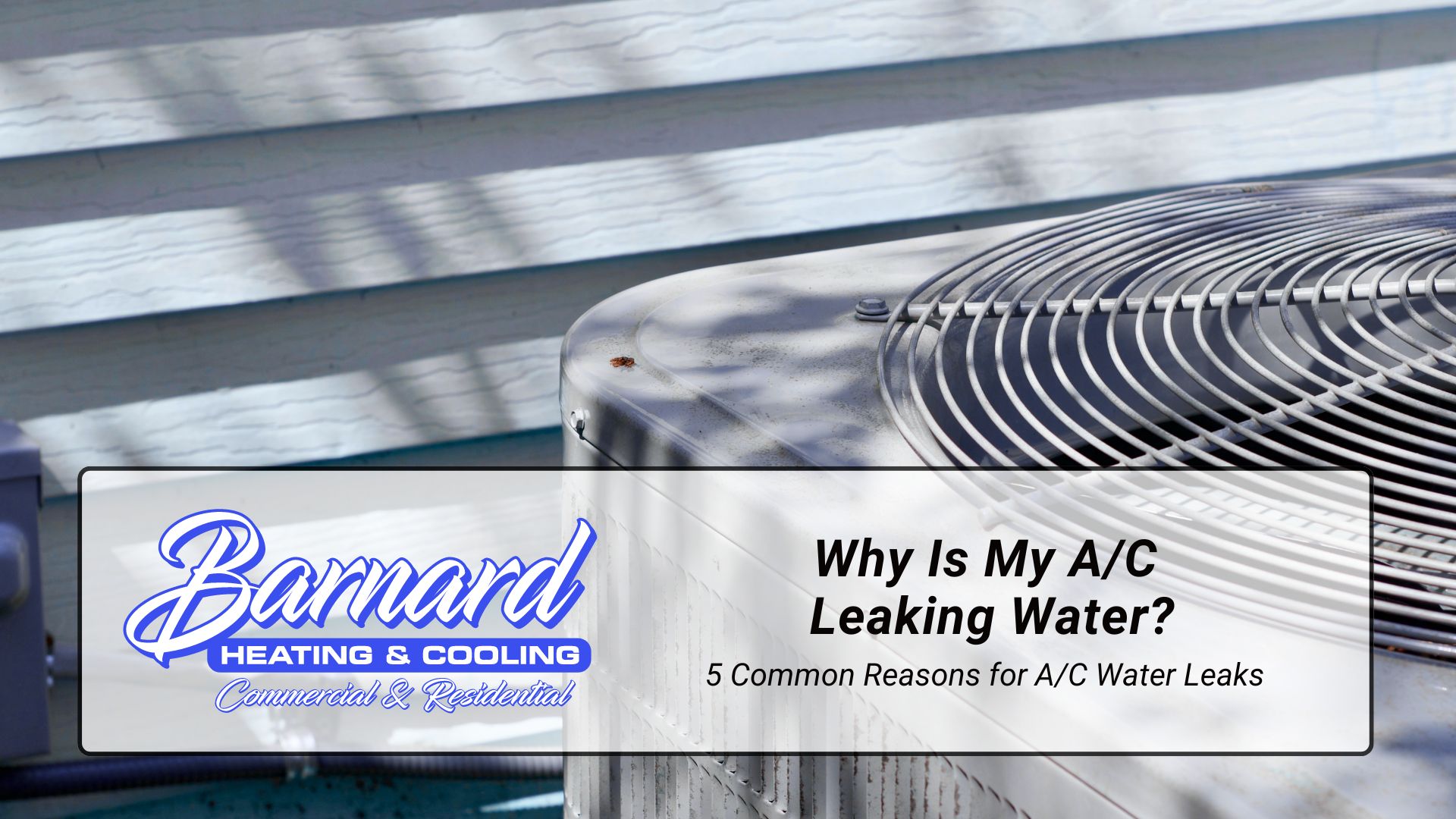Have you noticed water pooling around your air conditioning unit? While it's not normal for your A/C to leak water inside your home, this issue is often fixable. This article explains what might be happening and what you can do about it.
What To Know About Your A/C System
Before diving into the reasons for leaks, it's helpful to understand how your A/C works. Your system removes heat and humidity from the air inside your home. As warm air passes over the cold evaporator coil, condensation forms—similar to water droplets on a cold glass on a hot day. This water normally drains away through a condensate line, keeping your home cool and dry.
Common Reasons for A/C Water Leaks
1. Clogged Condensate Drain Line
Your A/C removes humidity from the air, creating condensation. This water typically flows out through a condensate drain line. If this line gets clogged with dust, dirt, or algae, the water backs up and leaks out.
2. Frozen Evaporator Coil
If your evaporator coil freezes, it can cause excess water when it melts. This can happen due to low refrigerant levels or restricted airflow. To fix this, check and replace your air filter. If the problem persists, you may need to call a professional to check your refrigerant levels. Ensure your vents aren't blocked by furniture or curtains to maintain proper airflow.
3. Damaged or Rusted Drain Pan
Over time, your drain pan can rust or crack, causing leaks. This is especially common in older units. You can examine the drain pan for damage. If you spot issues, it's best to replace the pan.
4. Improper Installation
If your A/C unit isn't level or the drain line wasn't installed correctly, it can lead to water leakage. Check if your unit is level using a spirit level. If it's not, or if you suspect installation issues, contact a professional HVAC technician. Proper installation is very important for the efficient operation of your A/C system.
5. Dirty Air Filter
A clogged air filter can cause your A/C to work harder, potentially leading to a frozen evaporator coil and subsequent water leakage when it thaws. To solve this, replace your air filter every one to three months, depending on usage and environmental factors like pets or dust levels in your home.
When To Call a Professional
While you can address some A/C leak causes on your own, others require expert help. If you notice any of these signs, seek professional help immediately:
- Unusual noises coming from your A/C unit
- Foul odors, which could indicate mold growth
- Significant increase in your energy bills
- Inconsistent cooling throughout your home
How To Prevent Future Leaks
Regular maintenance is key to preventing A/C leaks and ensuring efficient operation. Here are some tips:
- Schedule annual professional check-ups for your A/C system.
- Clean or replace air filters regularly.
- Keep the area around your outdoor unit clear of debris.
- Monitor your A/C's performance and address any issues promptly.
By understanding these common causes of A/C water leaks and following preventive measures, you can better address problems quickly and effectively. For more information, give our experts at Barnard Heating and Cooling a call today.
